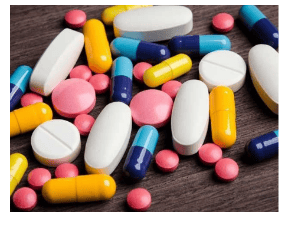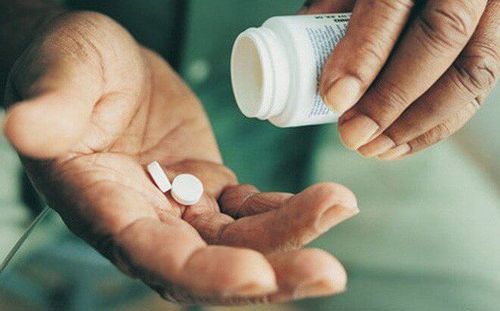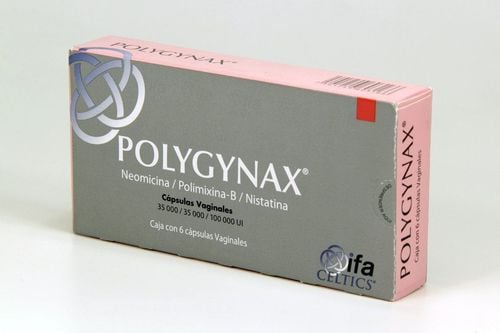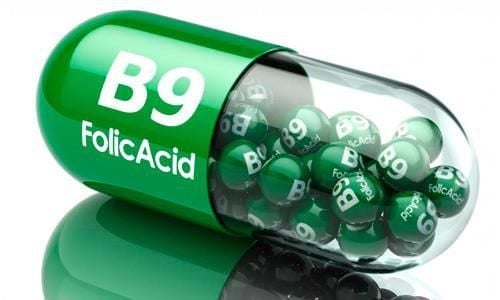This is an automatically translated article.
If you're breastfeeding, this is a great start for your baby. However, if you need to take medication, you may be wondering about the possible effect on breast milk.1. Do all medicines pass into breast milk?
Almost any drug that is in your blood will pass into your breast milk to some degree. While many drugs are safe to take while you're breastfeeding, most drugs pass into milk in certain amounts, and some can even affect your milk supply. Therefore, every drug must be considered separately.To be on the safe side, always check with your healthcare provider or pharmacist before taking any over-the-counter or prescription medicine.
2. The health and age of the child can be an important factor affecting the effects of the medication the mother is taking.
Exposure to drugs in breast milk poses the greatest risk to premature infants, newborns and infants who are medically unstable or have poor kidney function.The risk is lowest for healthy infants 6 months of age and older who can effectively remove the drug through the body. Women who breastfeed for more than a year after giving birth usually produce relatively less milk. This reduces the amount of medicine that passes into breast milk. In addition, medicines taken for 2 days after giving birth will pass to your baby at very low levels because the amount of breast milk secreted during this time is very limited.

Việc tiếp xúc với thuốc trong sữa mẹ có nguy cơ cao nhất đối với trẻ sinh non
3. Do you need to express milk and throw it away while on medication?
You may be advised to express and discard breast milk while taking certain medications because some harmful drugs can be passed on to breast milk. Expressing and discarding means using a breast pump to empty your udder and then pouring the milk you collect out. This is done when you can't or shouldn't give your baby milk, but it will still help you maintain your milk supply and start breastfeeding again later.In some cases, you can take the medicine right after breastfeeding and breastfeed your baby again just before it's time for the next dose. Ask your provider if this method is safe for your child. If your provider has advised you to stop breastfeeding while taking the medication, ask if there are alternative medicines that are safe for your baby.
If you know in advance that you will have to express and throw away, consider expressing and freezing the milk in advance, this will help your baby have a sufficient reserve before you start administering the medicine.
4. Should you stop breastfeeding while taking the drug?
Most medications are safe while breastfeeding. In addition, the benefits of continuing to take medication for a chronic condition while breastfeeding often outweigh any potential risks.However, there are still some medications that are not safe while breastfeeding. If you are taking a medicine that could harm your baby, your healthcare provider may recommend an alternative medicine. Or your doctor may recommend that you breastfeed at a time when drug levels are low in breast milk.
Sometimes your healthcare provider may recommend that you stop breastfeeding temporarily or permanently - depending on how long you need to take the medicine. If you plan to use the medication, pump outside of breastfeeding and store expressed milk for use during that time. If you just need to stop breastfeeding temporarily, use a breast pump to maintain your milk supply until you can breastfeed again. Throw away the milk you pump while taking the medicine.
If you are not sure if the medicine is compatible with breastfeeding, pump and label it clearly and store expressed breast milk in a separate area until you check with your provider its health care services. If you need to permanently stop breastfeeding - this is unusual - ask your healthcare provider about weaning and help you choose infant formula.

Nếu bạn không chắc liệu thuốc có tương thích với việc cho con bú hay không, hãy hút sữa và dán nhãn ghi rõ thông tin và bảo quản sữa mẹ đã vắt ở một khu vực riêng
5. What drugs are safe while breastfeeding?
With your healthcare provider's opinion, review this list of medications that are considered safe during breastfeeding. Keep in mind that this is not a complete list of medicines that are safe to take while breastfeeding.5.1. Painkiller Acetaminophen (Tylenol, others) Ibuprofen (Advil, Motrin IB, others) Naproxen (Naprosyn) - short-term use only 5.2. Antibiotics Fluconazole (Diflucan) Miconazole (Monistat 3) - apply amount Minimum Clotrimazole (Mycelex, Lotrimin) - apply minimum amount of Penicillin , such as amoxicillin and ampicillin Cephalosporin, such as cephalexin (Keflex) 5.3. Antihistamines Loratadine (Claritin, Alavert, others) Fexofenadine 5.4. Decongestants Medicines containing pseudoephedrine (Sudafed, Zyrtec D, others) - use with caution as pseudoephedrine may decrease milk supply
5.5. Birth control pills Progestin-only birth control pills, such as minipills. Recent research shows that birth control methods that use both estrogen and progestin - such as the combined oral contraceptive pill - do not affect milk production. For otherwise healthy women, you can start using combined oral contraceptives and other types of combined hormonal birth control one month after giving birth.
5.6. Gastrointestinal Famotidine (Pepcid) Cimetidine (Tagamet HB) 5.7. Antidepressants Paroxetine (Paxil) Sertraline (Zoloft) Fluvoxamine (Luvox) 5.8. Constipation medicine Docusate sodium (Colace, Diocto)

Vẫn có một số loại thuốc an toàn với phụ nữ đang cho con bú
6. Do I need my healthcare provider's consent before taking the medicine?
If you are breast-feeding and plan to take medication, check with your healthcare provider. Avoid unnecessary medications, such as herbal medicines, high-dose vitamins, and unusual supplements.You should also ask about the duration of the medication. For example, taking medicine immediately after breastfeeding can help reduce your baby's exposure. However, different medications peak in breast milk at different times, so it's important to get advice on what medication you're taking.
7. What to do when children have reactions to drugs?
While you are taking the medicine, watch your child for any changes in eating or sleeping habits, fussiness or rashes. If you notice any changes in your baby's behavior, contact your baby's doctor.Children in the period from 6 months to 3 years old are very susceptible to respiratory problems, respiratory infections, skin diseases and gastrointestinal infections... parents need special attention attention to the care and provision of adequate nutrition for children. The pediatric department at Vinmec International General Hospital is the address for receiving and examining diseases that infants and young children are susceptible to: viral fever, bacterial fever, otitis media, pneumonia in children. With a system of facilities, modern medical equipment, sterile space, minimizing the impact as well as the risk of disease spread, Vinmec will bring satisfaction to customers. and is highly appreciated by industry experts with:
Gathering a team of leading pediatricians: Including leading experts with high professional qualifications (professors, associate professors, doctors, Master's degree), experienced, worked at major hospitals such as Bach Mai, 108.. The doctors are all well-trained, professional, conscientious, knowledgeable about young psychology. In addition to domestic pediatric specialists, the Department of Pediatrics also has the participation of foreign experts (Japan, Singapore, Australia, USA) who are always pioneers in applying the latest and most effective treatment regimens. . Comprehensive services: In the field of Pediatrics, Vinmec provides a series of continuous medical examination and treatment services from Newborn to Pediatric and Vaccine,... according to international standards to help parents take care of their baby's health from birth to childhood. Advanced techniques: Vinmec has successfully deployed many specialized techniques to make the treatment of difficult diseases in pediatrics more effective: neurosurgery - skull, stem cell transplant blood in cancer treatment. Professional care: In addition to understanding children's psychology, Vinmec also pays special attention to the children's play space, helping them to play comfortably and get used to the hospital's environment, cooperate in treatment, improve the efficiency of medical treatment.
Please dial HOTLINE for more information or register for an appointment HERE. Download MyVinmec app to make appointments faster and to manage your bookings easily.
Reference sources: babycenter.com, mayoclinic.org












